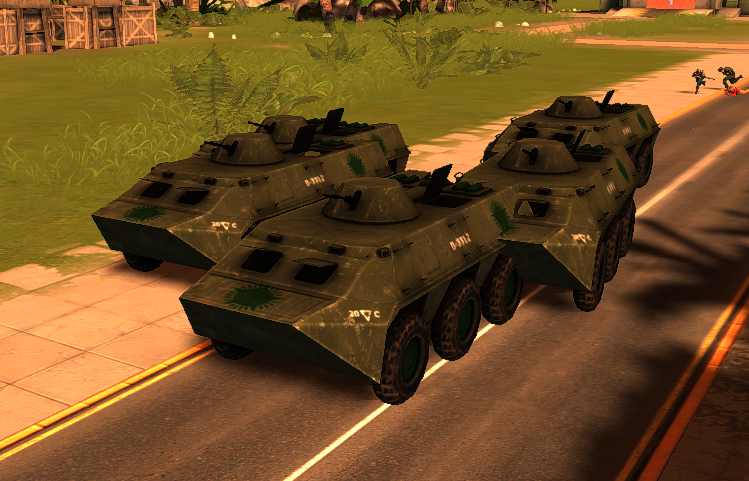


Everything Dyankov mentioned came with an explanation of how it would add interesting choices to Tropico, instead of existing merely to exist.


I liked almost everything I heard about Tropico 5. Interestingly, this combines with the era system in a way I didn't expect when I asked about whether resources that wouldn't be useful in the current era would be useful in later ones: they said that resources like uranium would be visible so that you could plan in advance and race other players for them even before they were useful. It'll be for four players on an island, with various degrees of cooperative or competitive gameplay-you can let another player control your city with you, or you can start bombing. That goes along with the other major change to the series: Tropico 5 will be the first in the franchise to have multiplayer. The developers stressed that they didn't want to turn Tropico into an RTS where combat tactics would win matches, but they did want to increase player control and complexity of battles. This is combined with an exploration system, where you send troops out to see new parts of the island, which may also leave your holdings undefended. Whenever pirates or foreign powers attack, you'll have some basic tactical choices about which areas of your island to focus defenses and attacks on. One of the big new developments is a much more robust military system. The eras are part of that, but they're not the only components new to this title. Thus they wanted to do many things differently for the fifth iteration. Although the developer and publisher were proud of Tropico 4, when they met with me they both indicated that they understood and acknowledged its reputation as not being very different from Tropico 3. That's not the only area where Tropico 5 is changing from its previous incarnations. At every point in the demo, Dyankov sounded like he and the team were designing the game in ways that didn't just sound historical or complex, but also made player choices more interesting and layered. Succeeding granted more time as governor, but in order to succeed you also had to take actions that might lower your population's revolutionary tendencies. The core gameplay tension was that, playing as the colonial governor of an island, you had to maintain your position with the homeland by fulfilling a colonial mandate (via quests). The only one discussed in detail during my demo was the mission to complete the colonial era by declaring independence. You can only progress to a different time period by completing a major mission. I played the fourth game's campaign scenarios and ignored the sandbox mode almost entirely, so I'll be interested to see if Tropico 5's eras help motivate me to just start a random new city.Ī few other aspects of the era system seemed like they might add strategic depth. That's partially due to the eras alone, but also due to the philosophical focus on making the “sandbox mode” more important in Tropico 5. That seems like it'll be less effective in Tropico 5. One of the biggest problems I had with Tropico 4 was that, once I figured out the best method of exploiting what needed to be exploited on my island, I'd just do that and let any other problem slide until the timer ran out. I can see the demand that I find new cash crops and economic systems reframing how I viewed each new scenario in Tropico 5, forcing me to view my city and island from a different perspective. I may like having the architectural record of my city, but what happens when it's more convenient to bulldoze those to construct more efficient new buildings? That's merely a mental choice, but Dyankov described a goal of having “organic growth and continuity” in which “a solution will only work for a limited time.” He described how the economy would change when moving through eras, where industries that made money in the colonial era might be superseded by later developments, like factories unavailable in the early eras producing goods later, or the importance of uranium in the Cold War era. Second, the different eras lead to dramatically different strategic decisions.


 0 kommentar(er)
0 kommentar(er)
